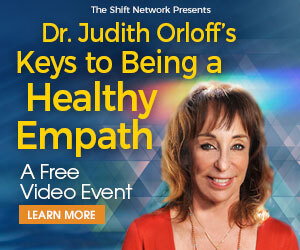
If your emotional triggers are set off, empathy will probably be the last thing on your mind. These are your reactive places that become activated by someone’s insensitive, angry, or unkind behaviors or comments. Often, when old psychological patterns are triggered, you may either withdraw emotionally or simply feel hurt. Or you may become enraged and respond aggressively but later regret lashing out. You may react so strongly because you feel unseen, judged, or justified in being right. In addition, you could be resisting painful feelings that may have surfaced. For instance, you may get triggered if a coworker says, “That promotion is way out of your league” or you parent declares, “Why should anyone listen to you?” So, you get upset, defensive, and feel disrespected. Also, you may doubt yourself or even feel inferior, as if you’d done something wrong.
When I recently gave an empathy training at a large tech company, one staff member said, “It’s difficult for me to be empathic with a coworker because they show up with enormous negativity and judge my ideas before hearing them out.”
I knew what she meant. It was a sensitive situation.
Even so, I told the staff member, “This is a chance to explore why you are so triggered, not just understandably annoyed, by these comments. Then you can begin to heal that trigger. First, try to find some empathy for your coworker. Remember that judgmental people are usually hardest on themselves. You can imagine what’s going on in their head when they’re alone! This doesn’t excuse them, but it will help you see them more compassionately, so you’re less reactive to their comments.”
It was important for this staff member to examine the past source of this trigger. I told her, “Identify any critical or negative ideas that came from your family or society such as, ‘I don’t deserve to stand up for myself,’ or ‘It is selfish to set boundaries.’” These untrue beliefs are based on fear and misconceptions. We all have emotional triggers that need healing. As you heal them, you won’t become as easily triggered or drained by other’s behaviors.
Try the following exercise from my new book The Genius of Empathy.
Heal Your Emotional Triggers
In your journal, identify your top three emotional triggers. Perhaps it’s when someone criticizes your appearance or job choice or is dismissive of your ideas or feelings. Then ask yourself, Who does this remind me of when I was growing up? Could it be a family member or a teacher? Or a friend who was simply being unfair? Write these down to clarify what sets you off. Then, reassure yourself: None of these statements are true. I am a loveable, worthy person. I deserve to be heard and valued. I promise to have empathy for the part of me that feels hurt or unworthy so I can heal.
Your goal is to become less triggered with time. Why? Because being triggered is exhausting and painful and puts a wedge between you and empathy for yourself and others. You become so preoccupied with managing your hurt feelings that it may not occur to you to empathize with yourself or even those people who have insecurities that manifest as putting others down or making them wrong. When you honor your true worth, you won’t be as reactive. It’s liberating to stop giving others the power to bother you that much. You still might understandably be turned off by their comments, but you won’t feel as deflated or angry or as if you were punched in the gut. Sometimes it’s a leap to reach this place, but once you succeed even a little, you’ll be reinforcing a healthier response.
Adapted from The Genius of Empathy (foreword by the Dalai Lama) by Judith Orloff, MD.




